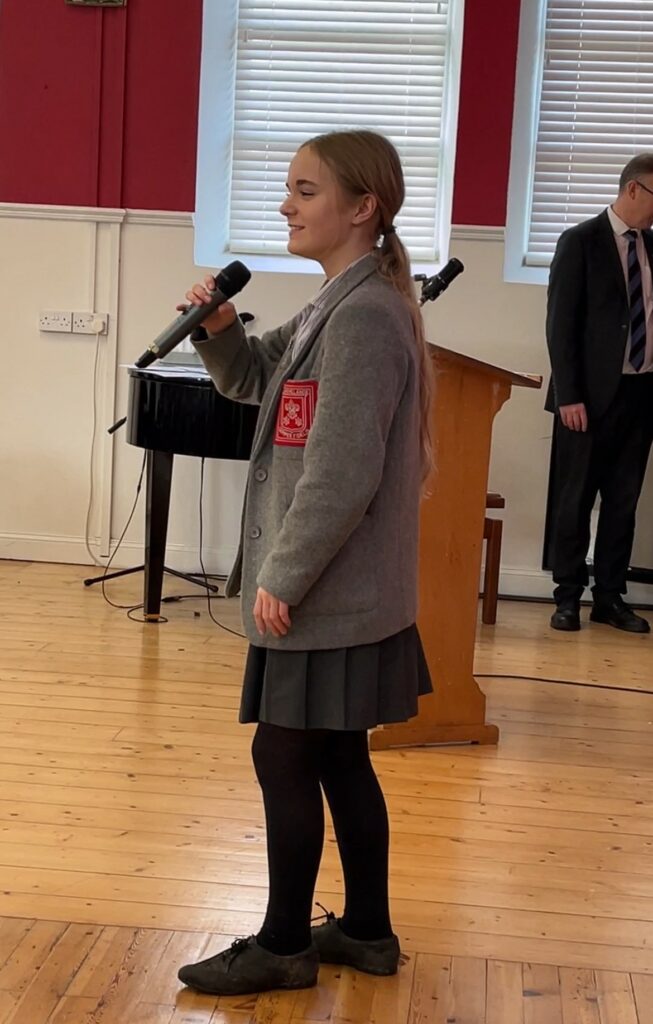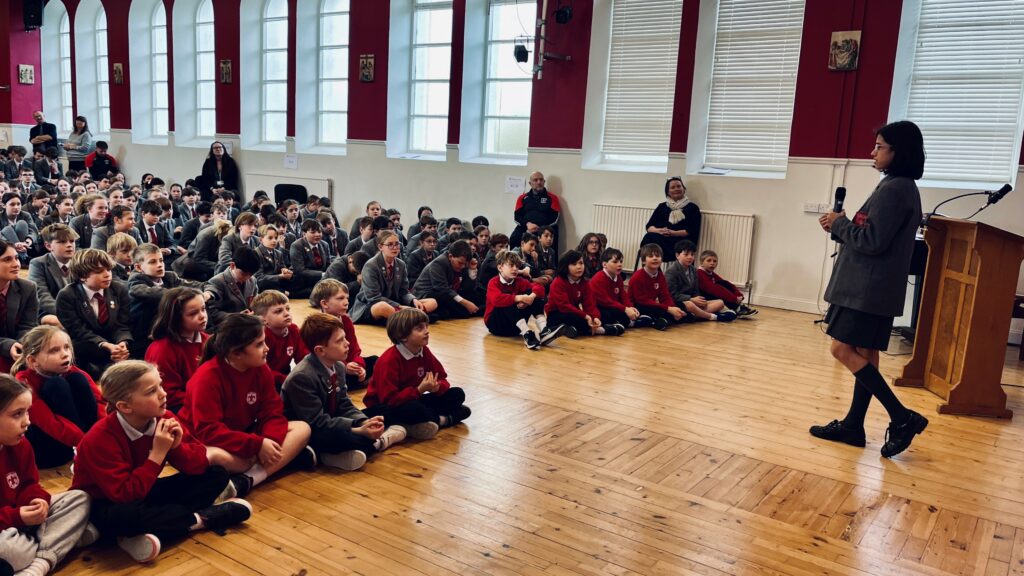English
Only the person who has questions can have real understanding. Examples of essential disciplinary questions that are vital to English at Blanchelande are:
Can we ever tell truly original stories, or are all the stories we tell shaped by our experience, understanding and memories? Do they come from inside us or from outside?
Do readers need to share a cultural heritage with writers in order to fully appreciate and understand what they are reading? Are there key stories/ideas that everyone should know?
Do you agree with Joseph Campbell that all heroes essentially follow the same journey?
How is our thought shaped by the language we use to express it?
Is the English language still evolving? Does studying Shakespeare help us to understand how language changes over time?
The English course at Key Stage 3 promotes independent thinking and gives every student the opportunity to become an effective communicator. We recognise the need for differentiation, continuity and progression in the tasks we set, as well as the need to provide a well-balanced curriculum, rich in variety and creativity, to enable each pupil to develop to their true potential. Core skills developed at Key Stage 3 enable pupils to flourish at GCSE, whilst also fostering a love of literature that continues into A-Level studies.
Year 7
All KS3 pupils embark upon a literary journey that allows them to experience and appreciate a varied canon. Starting with epic poetry, Year 7 explore the adventures of Beowulf, before moving onto Greek mythology where – inspired by Percy Jackson and the Lightning Thief – students are introduced to a pantheon of mythical characters including the Cyclops, Pegasus and Apollo.
Year 8
Year 8 students embrace the Jacobean era, studying the exploits of Caliban and Ariel in Shakespeare’s The Tempest before moving onto the work of Romantic poets, including William Wordsworth, Samuel Taylor Coleridge and William Blake.
Year 9
As students enter Year 9 they begin GCSE preparatory work, studying Shakespeare’s Macbeth and a range of contemporary poetry that allows for a greater engagement with the writers’ craft and an understanding of different cultures. All pupils are given the opportunity to develop creative writing skills. Alongside their Reading and Writing, all pupils participate in an individual Signature Project, whereby they develop and refine their research skills in preparation for their individual Speaking and Listening Assessment.
GCSE English Literature
At KS4 all students study the AQA English Literature syllabus, sharpening their analytical skills and engaging with the central themes within a text, whilst showing an understanding of its social and historical context. This means pupils can explain why Shakespeare’s Juliet was such a controversial woman for the 1600s or why Dickens chose to use Scrooge as his mouthpiece for social reform in A Christmas Carol. Pupils also study the AQA Poetry Anthology, identifying thematic links between the texts and showing a close analysis of language, structure, imagery and form.
Students gain a wide knowledge of history, culture, philosophy and even human behaviour.
GCSE English Language
All pupils study the AQA English Language syllabus and develop their skills of close analysis, engaging with the writers’ craft and showcasing their ability to deconstruct a text and explore its language, imagery and structure. Pupils improve their own writing skills, utilising rhetoric as a means of effective communication when writing to argue, advise or persuade.
A Level English Literature
English Literature is a popular subject at our Sixth Form but still taught in seminar-sized classes that provide a privileged experience of university-style teaching.
Year 12 and 13 pupils study a rich curriculum of poetry, prose and drama texts including A Streetcar Named Desire, Othello, ‘The Wife of Bath’s Tale’ (from The Canterbury Tales) and Frankenstein.
At A-Level, students show a greater awareness of the views of literary critics and utilise critical arguments and movements to inform their own interpretations. When exploring The Handmaid’s Tale or Othello students consider feminist and post-colonial responses to these texts.




